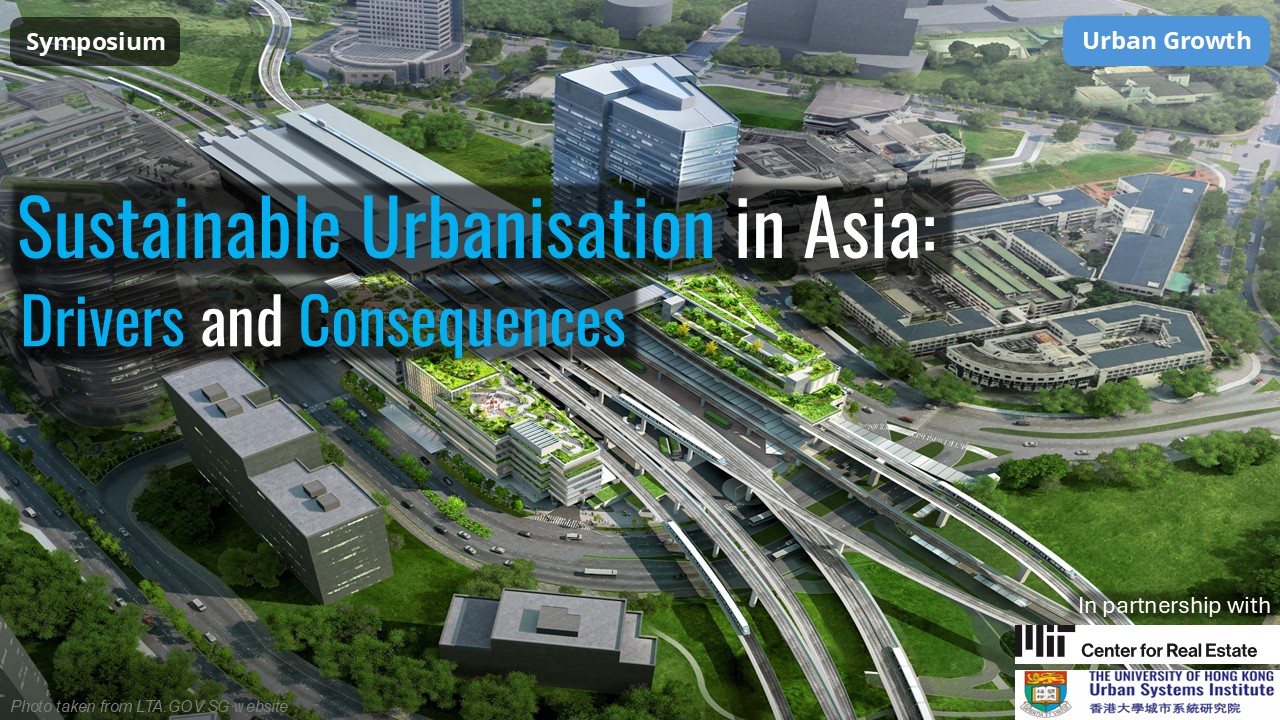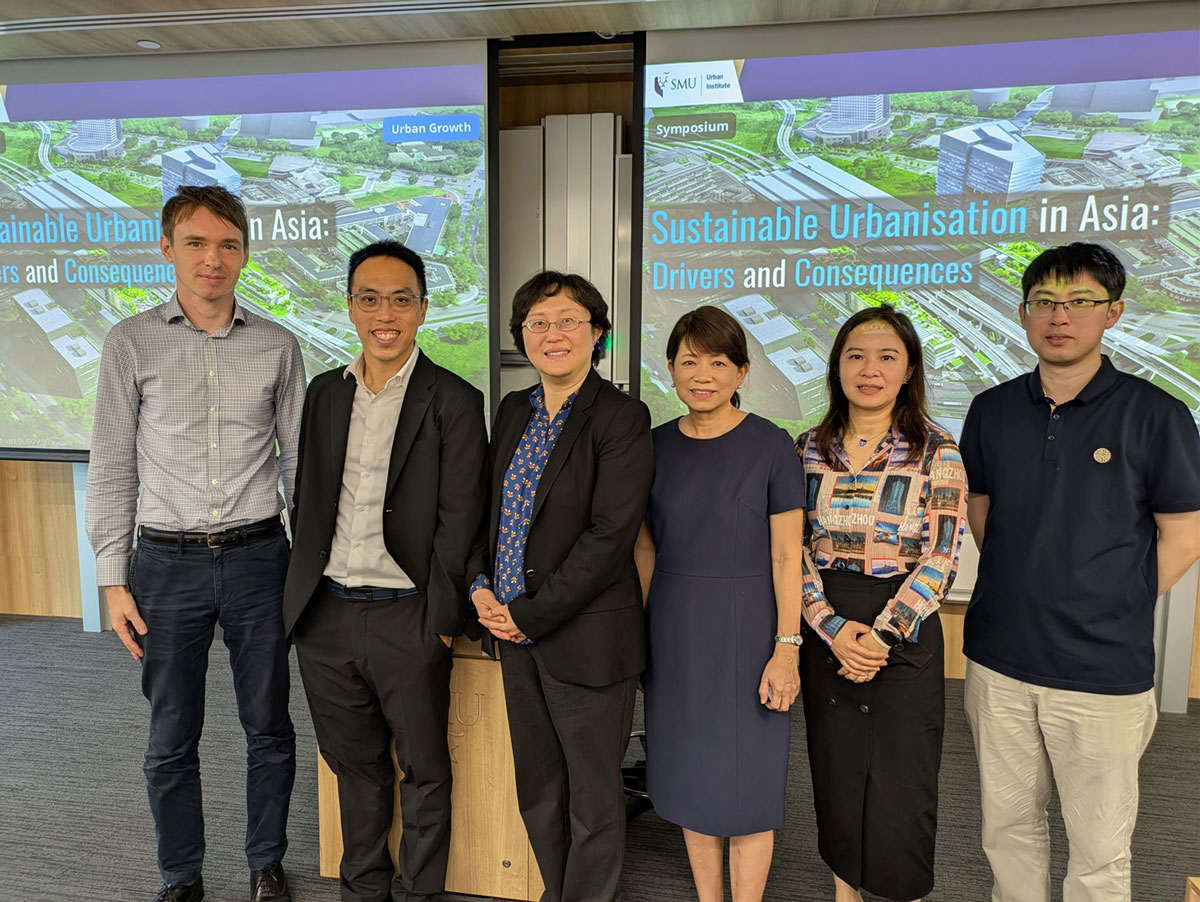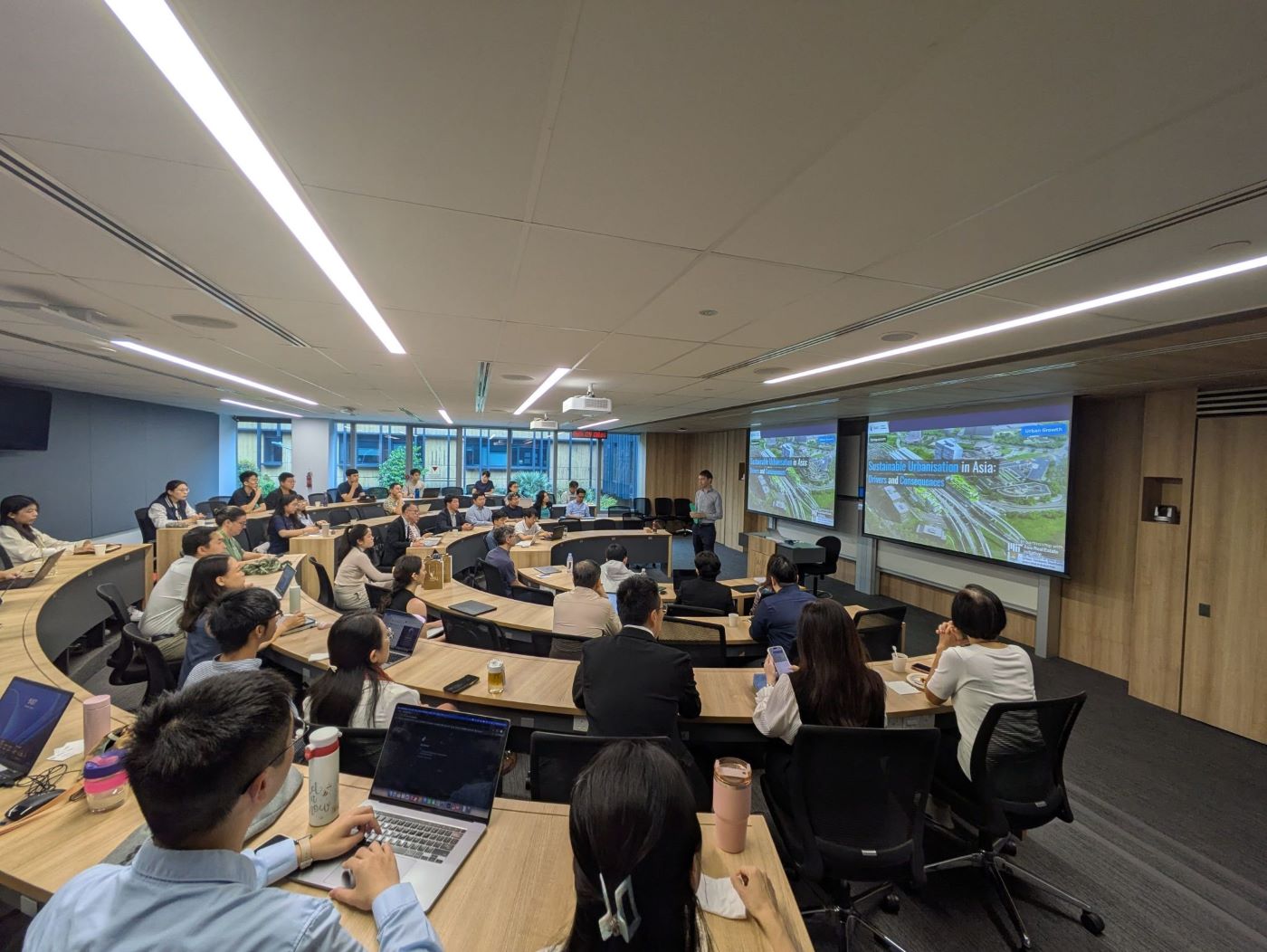Sustainable Urbanisation in Asia: Drivers and Consequences

This symposium explored the critical drivers and consequences of sustainable urbanisation in Asia, focusing on key challenges and opportunities that shaped the region's cities. Discussions addressed diverse topics, including the environmental and urban impacts of global trade, strategies for green and transit-oriented developments, the role of digital innovation in urban mobility, and the application of data-driven approaches for inclusive and sustainable urban futures. By bringing together thought leaders from academia and industry, the symposium aimed to provide actionable insights for building resilient and sustainable urban landscapes in Asia.


The Green Apple in Southeast/South Asia, presented by Prof. Siqi Zheng from MIT, examined the role of superstar firms like Apple in driving eco-economic decoupling and fostering sustainable growth in developing cities. The presentation highlighted how clean energy initiatives and innovative practices have alleviated pollution, while also contributing to the vibrancy of urban environments.
Dr. Nai Jia Lee from PropertyGuru delivered a session on Data-Driven Strategies for Sustainable and Inclusive Future Cities in Asia. This session addressed Asia’s urban growth challenges, demonstrating how data-driven approaches to climate-resilient planning and inclusive development are shaping the future of cities. Case studies from Vietnam, Singapore, and Thailand were showcased to illustrate these strategies.
Prof. Weizeng Sun from Nanjing Audit University explored Mobile QR Code Ticketing as a Digital Leap Towards Seamless Subway Travel. The presentation demonstrated how Beijing’s adoption of mobile QR ticketing reduced commuting times and congestion, resulting in significant efficiency improvements and spillover benefits for urban mobility.
Prof. Phang Sock-Yong from Singapore Management University presented on Green Transit-Oriented Developments in Asia. She discussed how integrating energy-efficient buildings with sustainable transit solutions can create environmentally friendly urban spaces, citing policies and case studies from Singapore and beyond as evidence of success.
In The Exquisite City, Prof. He Shenjing from the University of Hong Kong proposed a new theory of sustainable urban development. She emphasized the importance of indices to measure sustainability, green building practices, and integrated transit solutions to improve the overall livability of cities.
Prof. Orlando Woods, Director of the SMU Urban Institute, connected the key themes of the event. He focused on the interplay between networks, regulatory frameworks, and the temporality of urban development. He discussed how regulatory gaps create opportunities for sustainability and reflected on the human-scale impacts of urban infrastructure. His session encouraged deeper exploration of the diverse paradigms that shape urban norms.